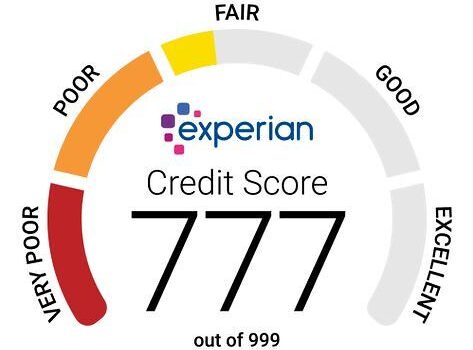Your credit score. It’s a three-digit number that can feel like a magic spell, holding the key to unlocking new opportunities or leaving you locked out. But what exactly is an Experian credit score, and how can you make it work for you? Buckle up, friends, because we’re about to embark on a journey to decode this financial mystery.
What is an Experian Credit Score?
Imagine your financial history as a story. Experian, one of the three major credit bureaus, takes your credit cards, loans, and other financial commitments and weaves them into a narrative. Your Experian credit score is like the chapter summary, a quick snapshot of your financial health. It ranges from 300 to 850, with higher scores indicating a lower risk of defaulting on loans.
Why is your Experian Credit Score Important?
Think of your Experian credit score as your financial passport. It can influence a wide range of things, from renting an apartment to securing a loan for your dream car. Lenders, landlords, and even some employers use your credit score to assess your financial responsibility. A good score can open doors, while a bad score can slam them shut.
How is your Experian Credit Score Calculated?
The magic behind your Experian credit score lies in a complex algorithm that considers five key factors:
- Payment history: This is the biggest chunk of the pie, accounting for 35% of your score. Missed payments or late payments can significantly ding your score.
- Credit utilization: This refers to how much credit you’re using compared to your available credit. Maxing out your credit cards is a red flag for lenders.
- Length of credit history: The longer your credit history, the better. It shows lenders you have experience managing credit responsibly.
- Types of credit: Having a mix of credit, like credit cards and loans, can be beneficial. However, too many credit inquiries can hurt your score.
- New credit: Opening too many new credit accounts in a short period can raise red flags for lenders.
Boosting Your Experian Credit Score:
Don’t worry, fellow financial adventurers! There are plenty of ways to improve your Experian credit score. Here are some tips:
- Pay your bills on time: This is the golden rule. Consistency is key!
- Keep your credit utilization low: Aim for less than 30% of your credit limit.
- Build a long credit history: Don’t close old accounts unless necessary.
- Mix up your credit types: Having a mix of credit cards and loans can be beneficial.
- Check your credit report regularly: Look for errors and dispute them if necessary.
Real-Life Example:
Let’s say Sarah, a young professional, has an Experian credit score of 650. This score is considered “fair,” but it could be higher. Sarah can start by paying her bills on time consistently and reducing her credit card balances. Over time, she can open a secured loan to build a stronger credit mix. By following these steps, Sarah can watch her Experian credit score climb, unlocking new financial opportunities and paving the way for a brighter future.
Remember, your Experian credit score is not a fixed destiny. It’s a dynamic number that can change over time with your financial choices. By understanding the factors that influence your score and taking steps to improve it, you can write a winning financial story with Experian as your co-author.
Bonus Tip: There are many online tools and resources available to help you track and improve your Experian credit score. Don’t hesitate to explore them and make informed decisions about your financial future.
So, there you have it, folks! Your Experian credit score is not a monster under the bed, but a powerful tool that can empower your financial journey. Take control of your credit score, and watch your financial dreams take flight!

4 thoughts on “Demystifying Your Experian Credit Score: A Key to Financial Freedom”